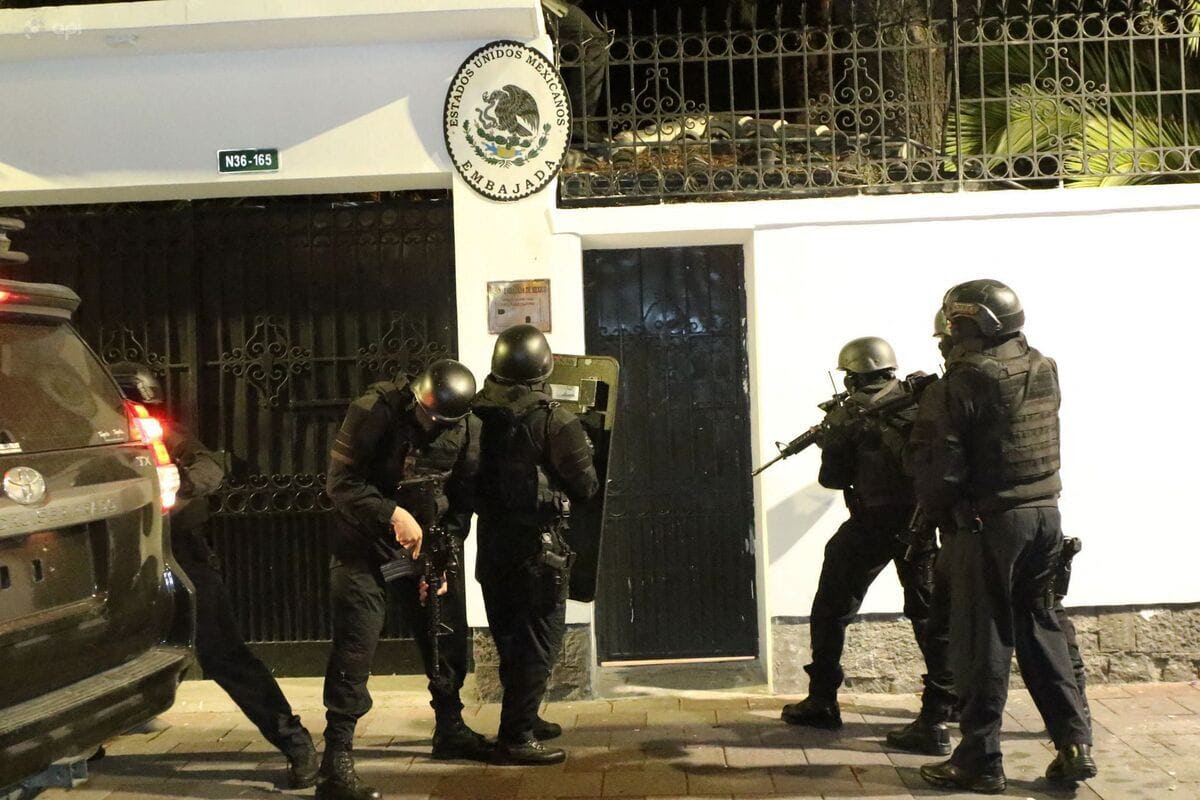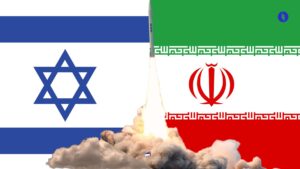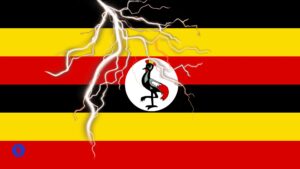An international tit-for-tat culminated on Friday night with Ecuadorian police dramatically storming Mexico’s embassy to arrest Ecuador’s former vice president.
Jorge Glas was Ecuador’s VP from 2013 until 2017, when he was ousted before a court jailed him for six years for accepting $13.5M in bribes. He then copped a separate eight-year sentence in 2020, along with his former president Rafael Correa (the leftist ex-leader who’s long been in Belgium, so was tried in absentia).
Curiously, Glas was then released early in 2022, but prosecutors went on to publish group chats from a cartel money-man, suggesting cartels had paid a judge $250k to release Glas early.
Stay on top of your world from inside your inbox.
Subscribe for free today and receive way much more insights.
Trusted by 134,000+ subscribers
No spam. No noise. Unsubscribe any time.
As rumours then circulated (🇪🇨) about another warrant for his arrest over additional corruption allegations, Glas fled to Mexico’s embassy in December last year, and requested political asylum.
Things then escalated further last week when Mexico’s left-leaning president (widely known as ‘AMLO’), threw shade at Ecuador’s young, right-leaning leader, suggesting Daniel Noboa only won October’s elections by “creating a climate of fear” – a reference to a presumed cartel assassination of another candidate.
In response to AMLO’s dig, Ecuador then effectively expelled Mexico’s ambassador, and Mexico followed by immediately granting Glas asylum on Friday. So, just hours later, Ecuador stormed Mexico’s embassy, seized Glas, and flew him to the country’s most notorious maximum security prison.
Ecuador’s president sought to justify the dramatic move by accusing Mexico of “abusing” the embassy’s immunities, while Mexico’s president announced the suspension of ties with Ecuador plus a case at the International Court of Justice (ICJ).
Pretty wild 72 hours, right?
But things just kept going, as Latin America showed rare unity in condemning Ecuador’s move – the only conflict was over who could condemn Ecuador more:
Colombia went with “barbaric“, Nicaragua opted for “despicable“, while regional pariah Venezuela went in for the kill, accusing Ecuador’s “rightwing, pro-Yankee government” of “kidnapping Glas“. Brazil left its thesaurus on the shelf and just used the “strongest possible terms“. Crucially given the politics here, the region’s right-leaning leaders (like Argentina and Uruguay) also condemned Ecuador.
Why all this outrage? It’s pretty common for political figures to seek asylum in the region’s embassies – heck, Panama’s ex-president now lives in Nicaragua’s embassy, and a convicted Ecuadorian minister lived in Argentina’s embassy for years before mysteriously popping up safe next door in Venezuela last month.
But governments don’t dare breach the embassy walls to seize these fugitives. That’s because the 1961 Vienna Convention says embassies are “inviolable“, and it’s a pretty sacrosanct rule, not to mention a pivotal plot point in Lethal Weapon 2. Examples of breaches are really pretty rare – Cuba has done it twice (in 1956 and 1981), pro-regime Iranians infamously did it in 1979, and of course, Israel bombed Iran’s embassy in Syria just last week.
So Ecuador has now written itself into quite the history book. But President Noboa is enjoying soaring popularity at home with his tough on crime approach, and something tells us Friday’s raid will give his polling another bump.
INTRIGUE’S TAKE
In ‘solving’ one problem, President Noboa has probably created more. First, at some point the ICJ will rule against Ecuador, and that could be more embarrassing than letting Glas evade authorities in the first place.
Second, Noboa needs the region’s – and the world’s – solidarity, as he struggles to tackle a real security crisis hitting a country that was long relatively peaceful. His chances of seizing that solidarity just got slimmer.
Third, Noboa also needs investment to help his country recover, but foreign investors will think twice about whipping out their checkbook if local authorities will happily breach an embassy, let alone a business.
And fourth, Noboa now risks effectively ‘martyring’ Glas more than holding him to account.
But this weekend’s drama is bigger than Noboa, Glas, or Ecuador. Regionally, it’s a symptom of stubborn challenges around corruption, impunity, and polarisation, with justice still often seemingly being served and skirted – and asylum offered – depending on your ideological affiliation.
And internationally, it’s all yet another step towards the law of the jungle. Though maybe this collective outrage will now help us all take one step back.
Also worth noting:
- Noboa declared Ecuador to be in an “internal armed conflict” in January and designated 20 drug-trafficking gangs as terrorist groups, authorising the military to “neutralise” them subject to international law.
- Noboa’s first term ends next year, as he was only elected to finish the term of a former president who stood down last year after months of political gridlock.








